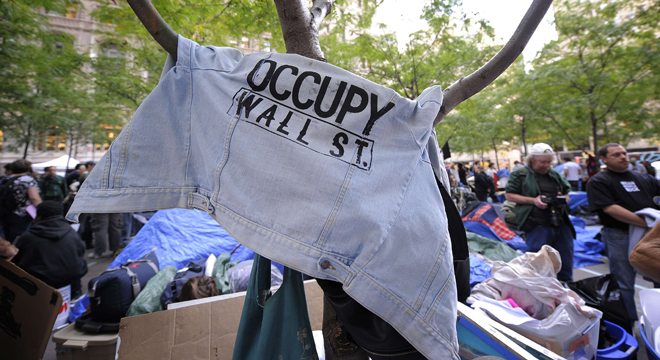Twitter is not handing over one user’s tweets without a fight.
On Monday, the San Francisco-based company filed an appeal in the Appellate Division of the New York State Supreme Court arguing that it should not have to comply with an earlier criminal court ruling ordering the company to deliver to the Manhattan District Attorney a selected series of tweets and identifying account information from Malcolm Harris, a writer, prankster and “Occupy Wall Street” protester arrested along with 400 other “Occupy” demonstrators on the Brooklyn Bridge in November 2011.
The Manhattan District Attorney’s office originally subpoenaed Twitter in January 2012 for three-months-worth of Harris’s tweets made in late 2011 under the account name “@destructuremal.”
Twitter, which initially argued against complying with the subpoena in May on the grounds that doing so would violate the Fourth Amendment right to unreasonable search and seizure, among other legal doctrines protecting citizens’ communications.
But the New York County criminal court disagreed, with Judge Matthew A. Sciarrino writing in a ruling in July upholding the original subpoena: “If you post a tweet, just like if you scream it out the window, there is no reasonable expectation of privacy.”
Twitter repeated many of its initial arguments in its appeal on Monday and accused the trial court of “ignor[ing]” key facts in how Twitter functions and who should legally allowed to see Twitter user information.
“Twitter users own their Tweets and should have the right to fight invalid government requests,” Twitter’s attorneys said in the company’s filing on Monday, a sentiment echoed by Twitter in-house lawyer Benjamin Lee, who also added in a tweet: “we continue to stand with them in that fight.”
Twitter’s filing also points out:
“…the government concedes it is unable to publicly access Defendant’s Tweets…The fact that the government needs Twitter’s assistance to get access to these communications coupled with the fact that the user is explicitly opposing this access, contradicts the notion that the user has no reasonable expectation of privacy in these Tweets.”
The American Civil Liberties Union, which has been filing briefs on Harris’s and Twitter’s behalves throughout the case, applauded Twitter for its move.
As ACLU attorney Adam Fine said in a statement emailed to reporters: “Under the First and Fourth Amendments, we have the right to speak freely on the Internet, safe in the knowledge that the government can’t get information about our speech without a warrant and without satisfying First Amendment scrutiny. We’re hopeful that Twitter’s appeal will overturn the criminal court’s dangerous decision, and reaffirm that we retain our constitutional rights to speech and privacy online, as well as offline.”
Meanwhile, Harris himself, who was charged with disorderly conduct and released, took to his new Twitter account, “@BigMeanInternet” on Monday with his response to Twitter’s appeal.
Asked by TPM if he was optimistic that Twitter’s filing could overturn the subpoena, Harris tweeted his reply: “Constitutionally.”






